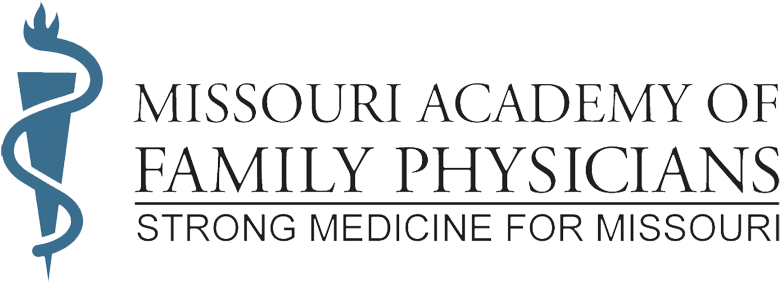District 4: Winter in Washington: Advocacy and Artificial Intelligence for EHRs
In January, Executive Director Kathy Pabst and I met with Drs. Jennifer Scheer and Keith Ratcliff at the Old Dutch Tavern in downtown Washington, MO. Drs. Scheer and Ratcliff are both delegates to MAFP’s Board of Directors and both practice in towns of 2000 people or less near Washington. To meet them, I drove through the wispy fog on moonlit state highways banked with snow before crossing the Washington bridge as the Missouri River glittering with brash ice below.
I entered the tavern’s warmth to find Kathy and Dr. Ratcliff already seated. Dr. Ratcliff is a content expert in state advocacy and the two were discussing MAFP’s advocacy strategy now that the 2019 legislative session has convened. In addition to monitoring bills that may affect the health of the patients we serve, this year MAFP proactively seeks legislative sponsorship for a bill related to primary care spend.
The concept of primary care spending is intuitive to me as a family physician and fascinating to me as a legislative initiative. Briefly, the United States, compared to other high-income countries, spends fewer dollars on primary care and more dollars on overall health costs without proportionate improvement in health outcomes. Primary care spend legislation seeks to quantify and increase investment in primary care by a) requiring insurers to make public the percentage of their medical spending devoted to primary care and b) mandating that a certain percentage of all health care spending be devoted to primary care.
The first state to enact such legislation, Rhode Island, found that increasing primary care spends by 5% resulted in annual primary care cost rising by $18 million while annual overall health care cost decreased by $115 million. Other states have since enacted similar legislation mandating transparency and minimum thresholds for primary care spend. MAFP hopes to soon count MO among these states.
As Dr. Scheer joined us at the table, the group conversation shifted from advocacy to practice issues. Like other family physicians with whom I’ve met, we discussed inefficiencies with electronic health records that were largely built by non-clinicians. Dr. Scheer has tackled this in a unique way by proactively working with her employer to deploy best practices in EHR usage to her fellow physicians. Most intriguingly, she foresees the evolution of EHR to a product that incorporates not only voice recognition but artificial intelligence and machine learning. She is hopeful that EHRs will no longer be the leading cause of physician frustration as they evolve. Until then, she says, we must hold our colleagues accountable for maintaining the integrity of our patients’ records.
I appreciate the time that Drs. Scheer and Ratcliff gave after busy days in their respective clinics! As always, any opinions, offenses, and errors of commission or omission in the words above are solely my own and do not necessarily reflect the opinions or positions of the MO or American Academies of Family Physicians nor their respective staff.



